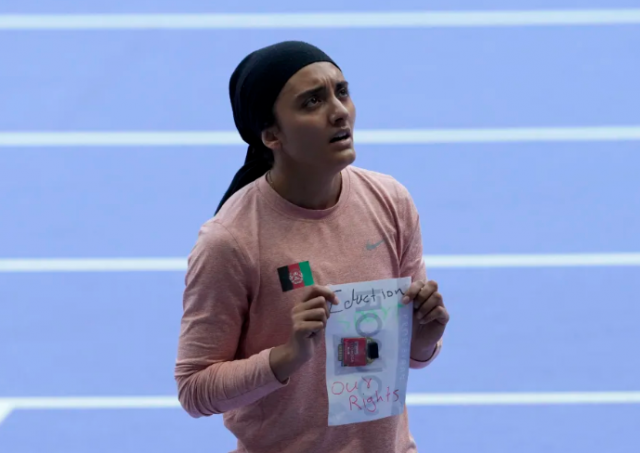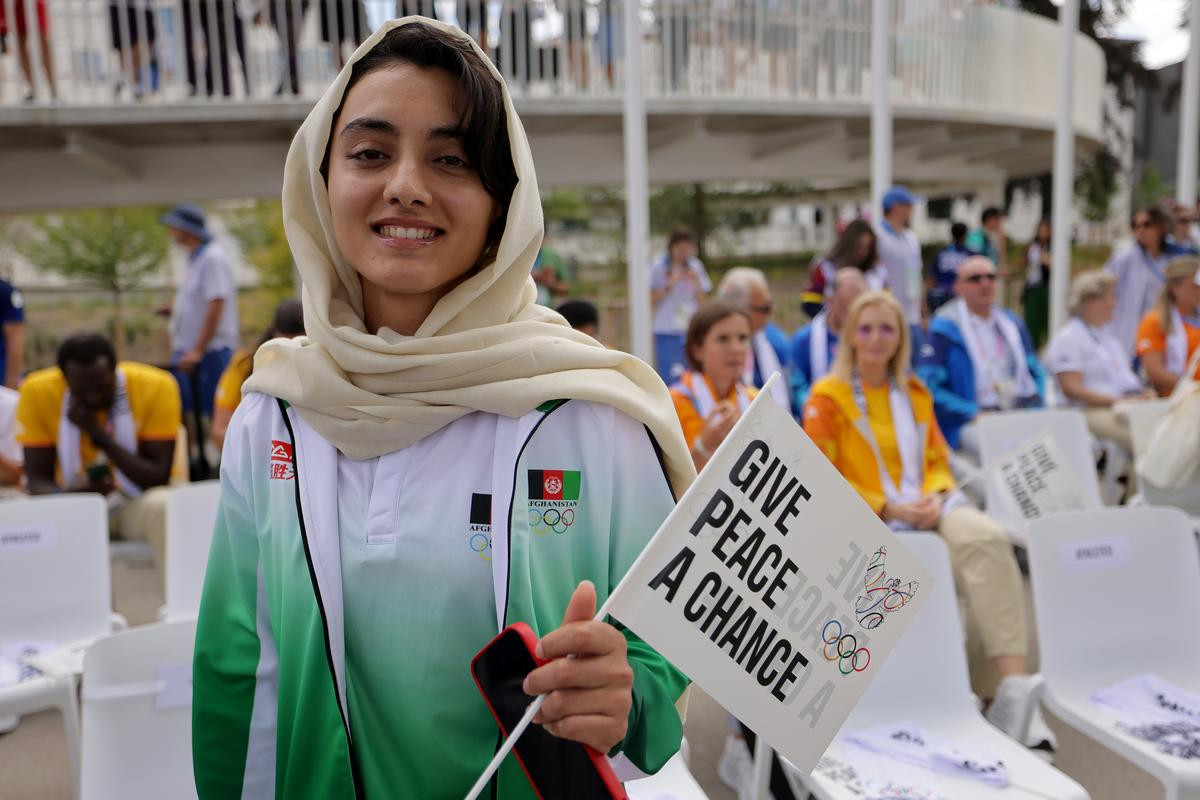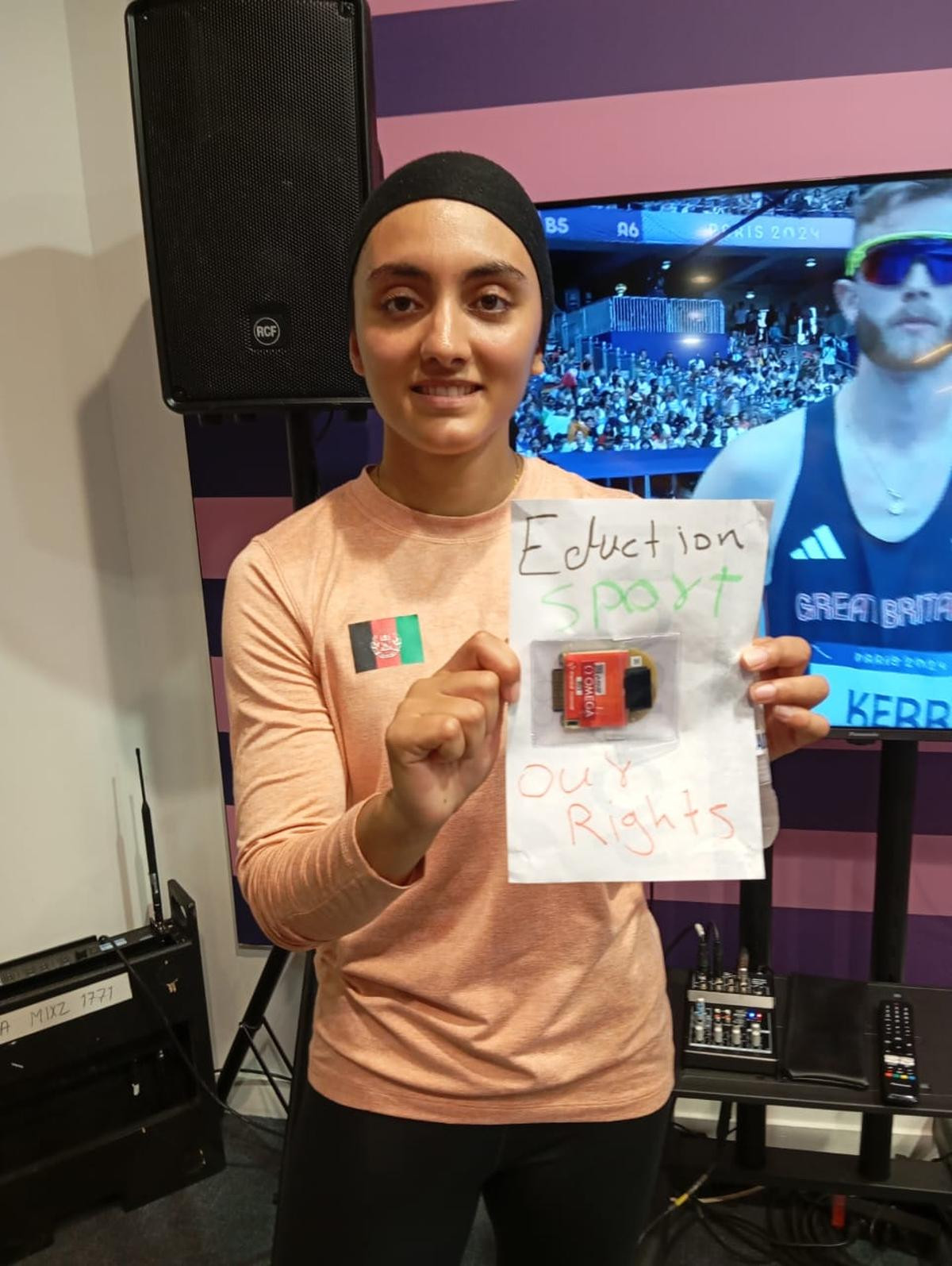Sprinter Kimia Yousofi uses Olympics platform to highlight women's issues in Afghanistan
'I feel responsibility for Afghan girls because they can’t talk,' Yousofi after finishing 100-meter preliminary heat

To get a sense of the real race Afghanistan's lone woman at the Olympic track meet is running, one only needed to look at the back of her bib.
On it, in handwritten script, were the words, spelled like this: “Eduction" and "Our Rights.”
Women and girls in Afghanistan have suffered immensely since Kimia Yousofi's home country was taken over by the Taliban in August 2021. A United Nations report last year said the country has become the most repressive in the world for women and girls, who are deprived of virtually all their basic rights.
“I think I feel a responsibility for Afghan girls because they can’t talk,” Yousofi said Friday after finishing last in her 100-meter preliminary heat.
Her 13.42-second sprint down the track was not the main point of this trip. Yousofi's story was a bracing illustration of how these trips to the Olympics aren't always about winning and losing.
“I’m not a politics person, I just do what I think is true,” Yousofi said. “I can talk with media. I can be the voice of Afghan girls. I (can) tell (people) what they want — they want basic rights, education and sports.”
Before she was born, Yousofi's parents fled Afghanistan during the Taliban's previous rule. She and her three brothers were born and raised in neighbouring Iran.
In 2012, when she was 16, Yousofi took part in a talent search for Afghan immigrant girls living in Iran. She later returned to Afghanistan to train for a chance to represent the country at the 2016 Olympics. These are her third Games.

But after the Taliban took over her country again, at around the time the Tokyo Games started, she moved to Australia with the help of officials there and the International Olympic Committee. She has been living in Sydney, trying to get better at speaking English. When she goes back, she will start looking for a job.

Had she sought one, she almost certainly would have earned a place on the Olympic refugee team that is designed for displaced athletes like her.
But she wanted to represent her country, flaws and all, with a hope that this trip to the Olympics will help shine a light on the way women are treated there.
“This is my flag, this is my country," she said. “This is my land.”


















COMMENTS
Comments are moderated and generally will be posted if they are on-topic and not abusive.
For more information, please see our Comments FAQ